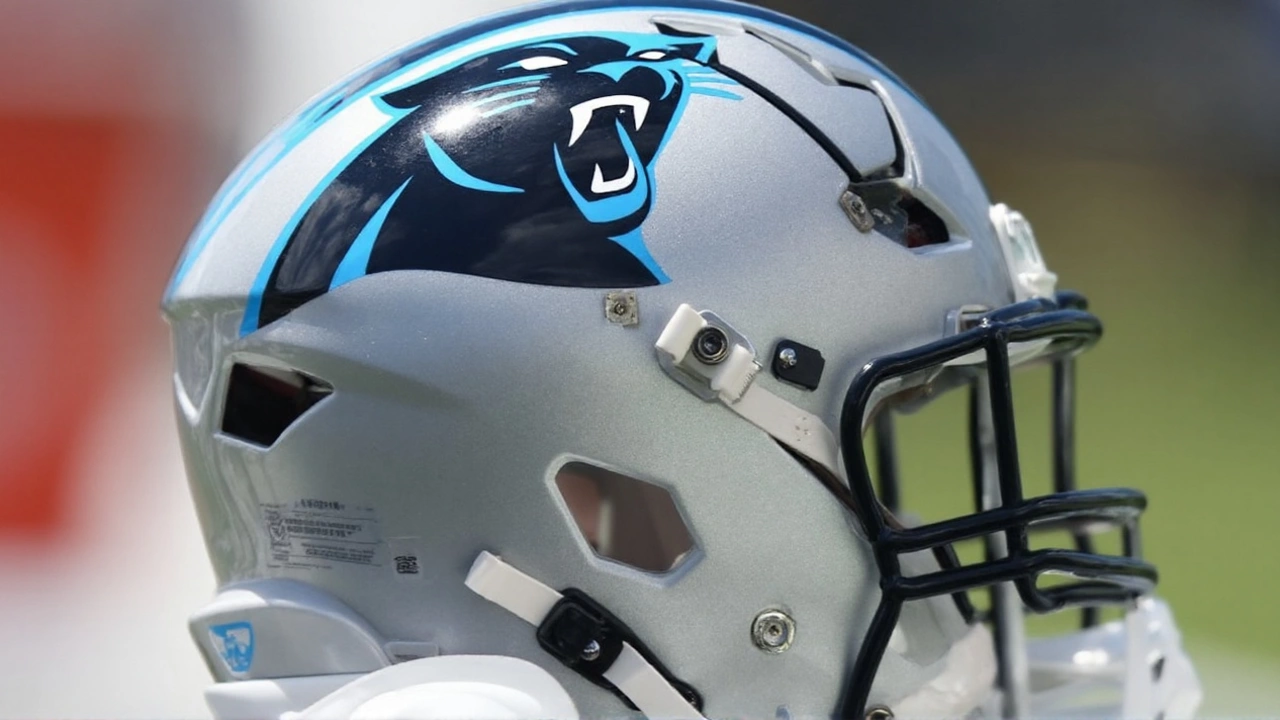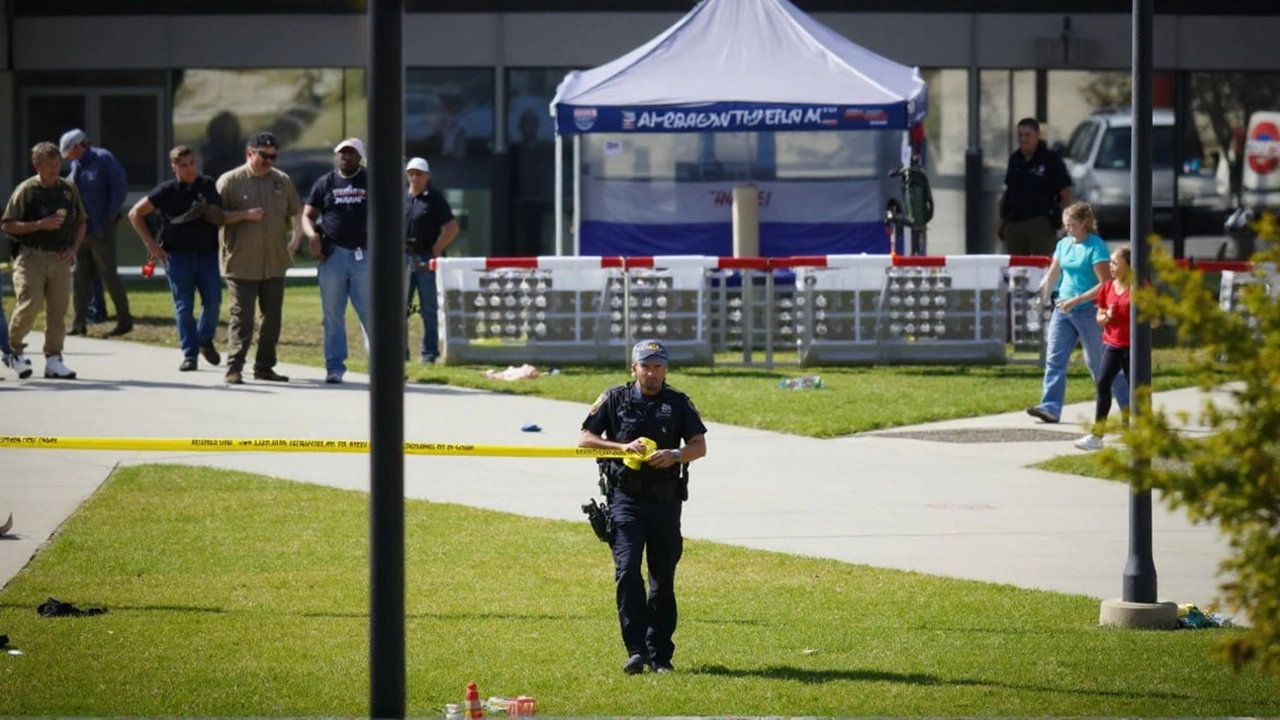Posts about Charlie Kirk trigger career consequences in sports and schools
A Carolina Panthers staffer lost his job. Florida educators are being investigated. And a handful of social posts lit the fuse. In the hours after reports about Charlie Kirk spread online, different employers moved fast to distance themselves from staff who mocked or cheered what was being said on social media.
The Panthers confirmed Thursday they dismissed football communications coordinator Charlie Rock after he posted a message that mocked posts about Kirk. In a brief statement, the team said employees’ personal views do not represent the franchise and that the matter had been addressed with the individual. For a club that spends all week crafting its public message, a comms staffer’s online behavior wasn’t just off-brand—it put the brand at risk.
In Florida, the Lee County School District said it reported an employee’s social post to Human Resources for review after the worker reacted to what the internet was saying about Kirk. The post, which included the line “What’s that about the cost of the Second Amendment being ‘some gun deaths every year,’ Bye Charlie” and emojis, was flagged internally. District officials said appropriate steps were in place to keep classrooms focused on teaching and learning while HR reviews the case.
Florida’s Education Commissioner, Anastasios Kamoutsas, went further. He announced investigations into any educator who engages in what he called “vile, sanctionable behavior” in posts about the situation. In a memo to districts, he stressed that while most Florida teachers are high-quality professionals, public posts can undermine the trust that students and families place in schools. He pointed to the state’s ethics rules and code of professional conduct, which warn educators to avoid online behavior that damages their fitness to teach or the reputation of their district.
Lee County’s own social media policy allows employees to identify where they work on personal accounts—but it also tells them to make clear they’re speaking only for themselves. Even then, the policy warns, people may still tie a post back to the district. If that post reflects poorly on the organization, discipline can follow.
None of the institutions weighing discipline addressed the accuracy of posts about Kirk’s status. Their focus was narrower: how staff behaved online, and whether that conduct hurt trust with fans, students, or the public.

The new workplace line on speech: what’s changing and why it matters
Why did responses land so fast? Two reasons: the roles and the platforms. A football communications coordinator is part of a team’s public face. A teacher or district employee serves families whose trust depends on judgment and professionalism. When posts appear to revel in suffering or violence, employers see more than a bad take—they see a reputational and safety risk.
There’s also a legal split many people miss. Private employers, like NFL teams, have wide latitude to act when a public-facing staffer hurts the brand. Public employees—teachers, for instance—have First Amendment protections, but those protections aren’t absolute at work. Courts use a balancing test, rooted in the Pickering case, to weigh a public employee’s right to speak on a public issue against the employer’s need to run an efficient, disruption-free workplace. If a post looks like it threatens safety, fuels harassment, or disrupts school operations, districts often argue the balance tilts their way.
Two other legal guideposts shape these calls. In Garcetti v. Ceballos, the Supreme Court said speech made as part of an employee’s official duties isn’t protected the same way as private-citizen speech. And in City of San Diego v. Roe, the Court backed a public employer disciplining off-duty conduct that harmed the agency’s effectiveness. Translated to social media: off-hours posts can still cost a public employee if they collide with the mission of the institution.
HR teams also think about reach and role. A post by a private citizen might draw a few comments. A post by someone who lists their employer, works in communications, or interacts with children can snowball into headlines, calls to the front office, and safety concerns for colleagues. That’s why responses often follow a familiar playbook: isolate the post from the brand, open an investigation, consult the code of conduct, and choose a response that prevents further disruption.
For school systems, regulators add another layer. When a post is flagged, a district might put an employee on leave, issue a reprimand, or require training. State education departments can then review whether the conduct violates professional ethics and, in serious cases, consider action against a teaching license. That’s what Commissioner Kamoutsas is signaling: classroom conduct isn’t the only thing that counts—public conduct that erodes trust can also trigger oversight.
What should employees take from this?
- If you list your employer or hold a public-facing job, your posts travel with the brand.
- Disclaimers help, but they don’t shield you if your post harms your organization’s reputation or disrupts its work.
- Jokes about violence or celebrating harm are treated as a red line by most employers, especially in education and sports.
- “Off the clock” doesn’t mean “off the record.” Screenshots outlive deletions.
Back in Charlotte, the Panthers chose the cleanest break possible by firing their staffer. In Lee County, the district stuck to procedure—send the case to HR, keep classrooms calm, and follow the policy. At the state level, Florida’s top education official made it clear he wants a consistent standard for educator conduct online, one grounded in ethics rules and public trust.
Expect more cases like this. When public conversation turns raw, strong reactions show up online within minutes. Employers then face a blunt choice: defend the institution’s values or risk being seen as endorsing the ugliest posts in their feed. Sports franchises usually act quickly to keep the brand out of the crossfire. School districts, accountable to families and state regulators, move through formal steps but still push for a result that keeps the focus on learning.
One more reality check: training matters. Many organizations now refresh social media guidelines every year, with examples of what crosses the line and why. The clearest rules spell out consequences—from coaching to suspension to termination—and explain the rationale in plain language. That way, when a crisis hits, decisions don’t feel arbitrary; they follow a policy everyone has seen.
All of this circles back to trust. Teams want fans to believe their people reflect the values on the jersey. Schools want families to believe their kids are safe with adults who use good judgment. In a world where a 15-second post can undo years of goodwill, both are drawing a firmer line on what their employees say online—and how fast they act when that line is crossed.

Fahri Setiawan
Halo, nama saya Fahri Setiawan. Saya adalah seorang ahli dalam bidang judi dan permainan online. Saya sangat menyukai menulis tentang berbagai macam permainan, baik itu video game, permainan kartu, atau permainan kasino. Saya telah menghabiskan bertahun-tahun untuk mempelajari dan menguasai berbagai jenis permainan serta strategi yang terbaik untuk memenangkannya. Melalui tulisan saya, saya ingin berbagi pengetahuan dan pengalaman saya untuk membantu para pemain, baik yang baru atau yang sudah berpengalaman, untuk meningkatkan keahlian mereka dalam perjudian dan permainan.
melihat semua postingTulis komentar